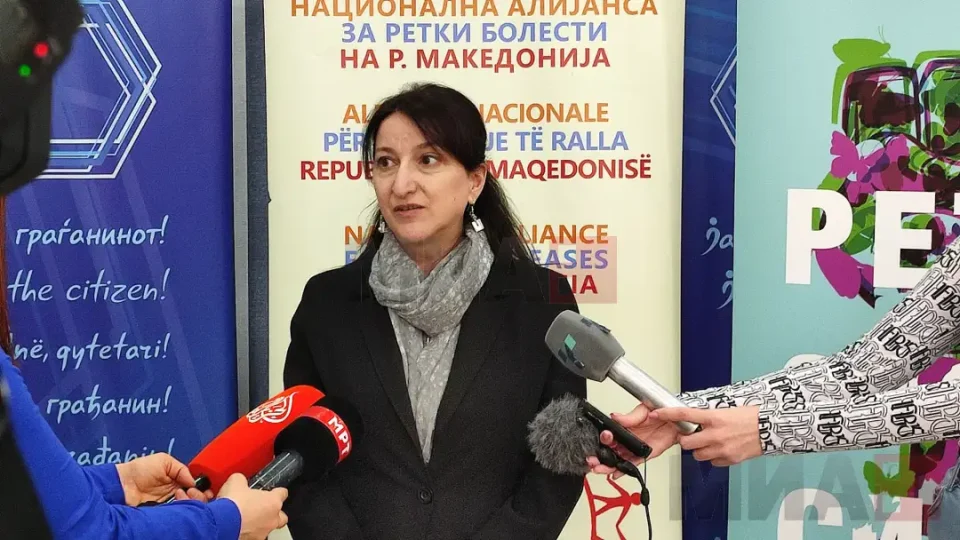The situation regarding rare diseases in Macedonia highlights both progress and challenges. On the positive side, there has been a significant increase in the budget allocated for the rare diseases program, demonstrating a commitment to addressing the needs of this vulnerable population. The government’s investment in diagnostic procedures and therapy for patients with rare diseases reflects an awareness of the importance of medical support.
However, the data indicates a gap between the number of people registered for rare diseases and those receiving therapy. The fact that less than half of the registered individuals are receiving treatment suggests that there may be limitations in the availability of therapies for all rare diseases. This emphasizes the need for a comprehensive and inclusive Rare Diseases Strategy.
The call for the adoption of the Rare Diseases Strategy is crucial, as it highlights the importance of not only providing medical treatment but also addressing the social, community, and psychological aspects of living with a rare disease. Achieving social justice and equality for individuals with rare diseases goes beyond medical interventions; it requires a holistic approach that encompasses societal acceptance, community support, and psychological well-being.
The statement by Health Minister Ilir Demiri indicates that the government is aware of the global developments in rare disease management and is actively investing in improving diagnostic procedures. The continuous monitoring of advancements in this field is a positive sign, showing a commitment to staying updated with the latest technologies and treatments.
In summary, while progress has been made in terms of increased budget and awareness, the call for the adoption of a Rare Diseases Strategy underscores the importance of a comprehensive approach to address the multifaceted challenges faced by individuals with rare diseases in Macedonia.
Dushan Tomshikj, spokesperson for the Anti-discrimination Commission, emphasized the need to prevent the segregation of children with rare diseases in the education system. He urged the state to swiftly adopt the Rare Diseases Strategy to address challenges and enable these children to continue their education at home or with additional classes.
Tomshikj stressed that the strategy, coupled with a robust budget, can help eliminate weaknesses in the system. He highlighted the importance of raising awareness that these children pose no danger and, with proper treatment, can attend classes like everyone else.
Natasha Angjeleska, a representative of the National Alliance for Rare Diseases of Macedonia (NARDM), pointed out that the challenges extend beyond therapy availability, affecting various aspects of daily life. She emphasized the fear of survival and the impact on the quality of life for those with rare diseases. Despite the lack of an exact count, Health Ministry data reported 822 registered cases last year.
Angjeleska noted the continuous increase in the Rare Diseases Program budget, providing therapy. However, less than half of registered individuals receive therapy due to the high cost and limited availability for all rare diseases, compounded by a shortage of pharmaceutical companies in the small country.
First Lady Elizabeta Gjorgievska highlighted the complexity of diagnosing rare diseases and emphasized the importance of social, community, and psychological support alongside medical treatment. She underscored that care for rare disease patients should be barrier-free, regardless of financial or administrative constraints.
In conclusion, rare diseases test the declared social justice, equality, and humanity of Macedonian society, requiring a collective effort to provide comprehensive care and support for those affected.





Comments are closed for this post.